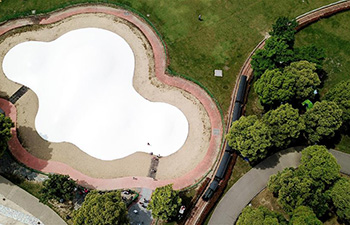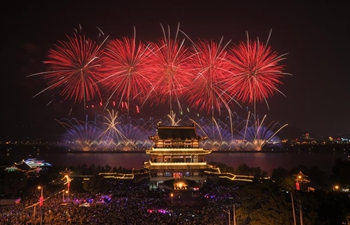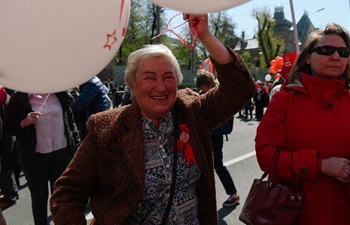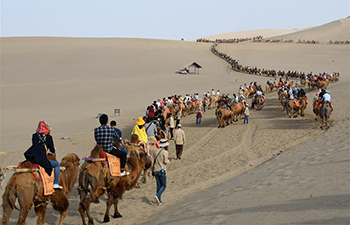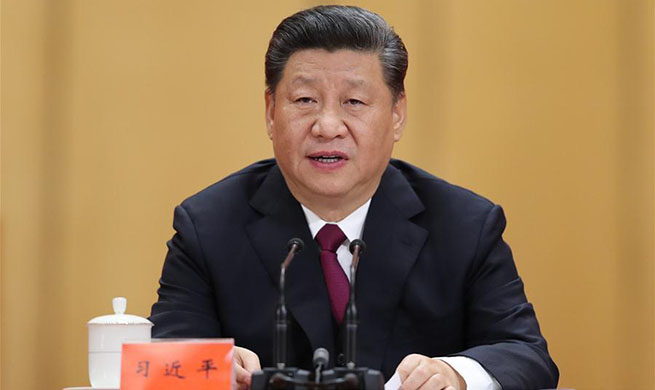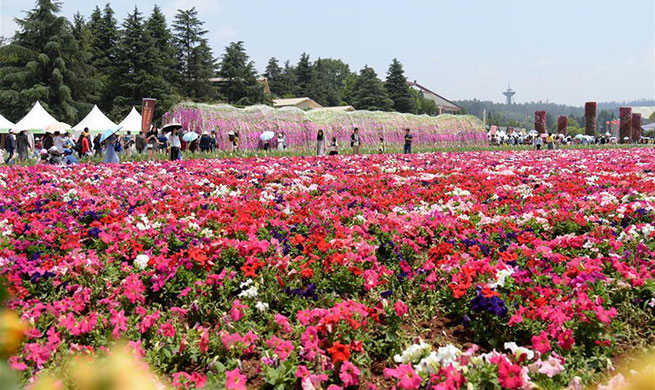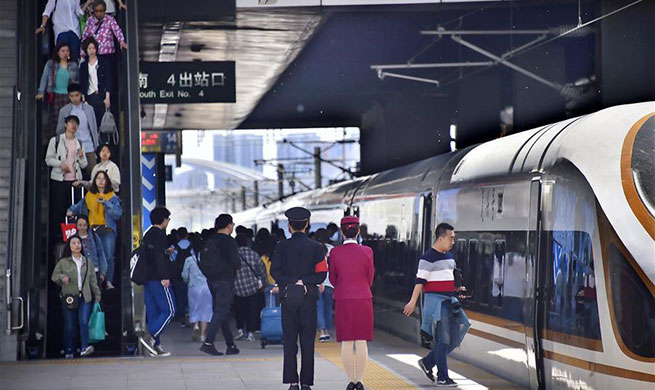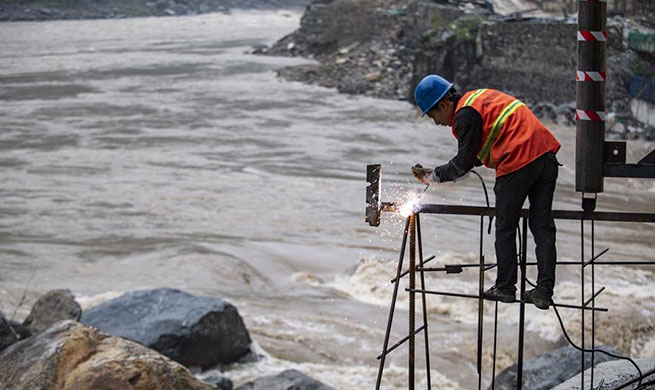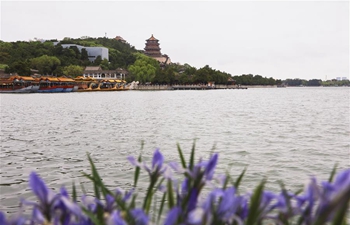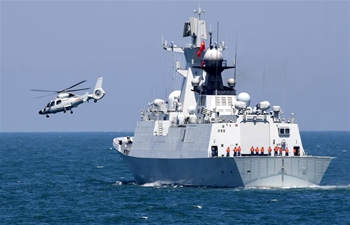by Dana Halawi
BEIRUT, May 2 (Xinhua) -- Regional and international experts gathered Thursday in Lebanon to attend the Arab Economic Forum and discuss ways of boosting growth in the Arab region.
"We can boost growth in Arab countries by creating jobs and enhancing Foreign Direct Investments (FDIs) from European business partners in Arab countries," Peter Ramsauer, president of the Arab-German Chamber of Commerce and Industry and chairman of the Committee on Economic Cooperation and Development, said during the event which took place at Four Seasons Hotel in Beirut.
One way of doing so, according to Ramsauer, is by providing the youths with advanced economic education and vocational training.
"We need people who are skilled in the commercial and technical fields and Germany, in addition to other European countries, has educational and vocational systems that provide excellent skills," he said.
Ramsauer emphasized the need for political stability and proper legal framework to increase investments and boost growth in the Arab region.
"Investment is a long-term perspective issue so no European country will increase its FDIs if stability is not prevailing," he said.
He also noted that bilateral trade between the European Union and Arab countries is unbalanced and this should be changed.
"The total trade volume between the EU and Arab countries amounts to 326 billion euros with Arab exports standing at only 132 billion euros while Arab imports from the EU is valued at 194 billion euros," he said.
Ramsauer said that trade between the EU and the Arab world can be balanced by dismantling trade barriers in Europe.
"Removing trade barriers only make sense if the Arab countries have a huge variety of products to export," he said while adding that this has improved recently and oil producing countries have been diversifying their productions which will enable them to export to the EU in the near future.
Meanwhile, Azim Sadikov, assistant to the director of the Middle East and Central Asia Department and the mission chief for Kuwait at the International Monetary Fund, emphasized the need to focus on Small and Medium Enterprises (SMEs) which are the cornerstone of Arab economies and account for 90 percent of firms.
"SMEs contribute from 4 percent to 40 percent to GDP in some Arab economies and they contribute to more than 50 percent of private employment in Lebanon, Yemen, West Bank, Gaza and Sudan," he said.
However, Sadikov noted that only 7 percent of bank credit goes to SMEs which is the lowest in the Arab world compared to other regions.
Sadikov said that there is a huge gap in the financial inclusion index between Arab countries and other regions.
Financial inclusion is defined as the availability and equality of opportunities to access financial services.
"If the Arab world closes this financial inclusion gap and moves to the average of emerging and developing countries, growth would be about 1 percentage point higher and for some countries such as Iraq and Yemen it would be around three percentage points while it could create 7 million additional jobs in the next five years," he said.
According to April 2019 IMF report, growth in MENAP oil exporters is projected at 0.4 percent in 2019 which reflects a sharp decline in Iran's economic activity of 6 percent, oil production cuts, and tighter domestic and monetary conditions in some countries.
The report stated that growth in Gulf Cooperation Council (GCC) countries is expected to improve slightly to 2.1 percent in 2019, up from 2 percent in 2018 while growth is set to contract by 1.7 percent in non-GCC oil exporters after contracting by 1.1 percent in 2018.
For her part, Sahar Nasr, Egyptian minister of investment and international cooperation, said that Egypt has succeeding in reaching a growth that is higher than 5 percent despite the low growth rate in the region due it to its capacity to attract FDIs and introduce important legislative reforms.
The Arab Economic Forum is a yearly event organized by Al-Iktissad Wal-Aamal Group aimed at tackling regional issues and developments.




